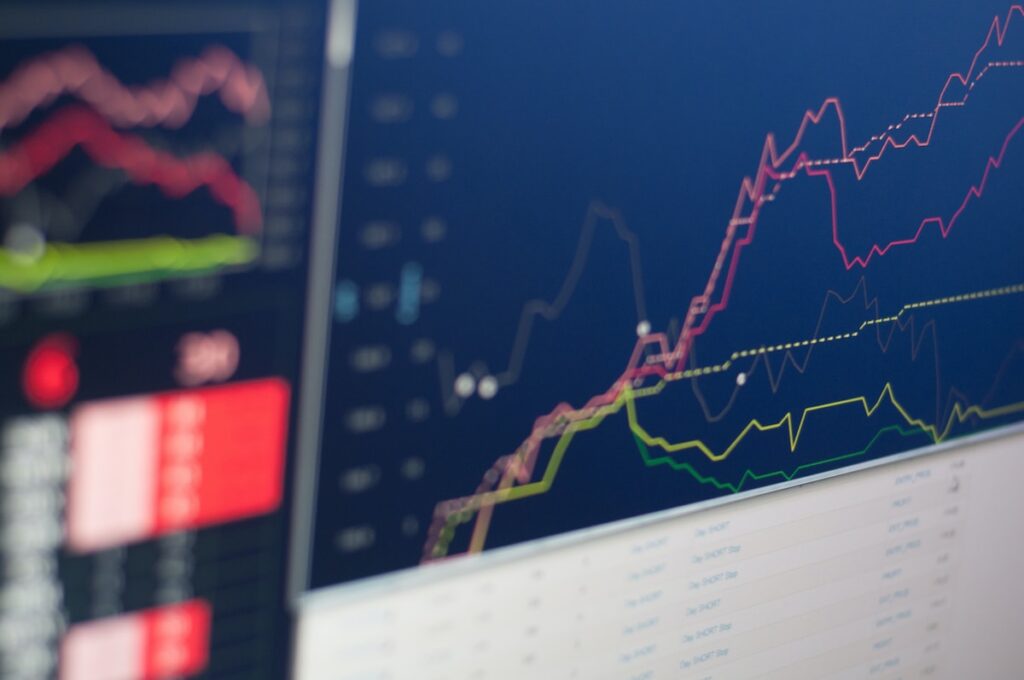The Indian stock market might start off slow on Friday because of mixed signals from global markets. People will be watching how Indian companies did in the last three months to see how it affects the market.
Asian markets were mixed, and US stocks ended lower because of mixed economic data and comments from Fed officials that made investors less optimistic about potential rate cuts from the Federal Reserve this year.
On Thursday, the Indian stock market indices ended the volatile session with marginal gains amid largely positive global cues.
The Sensex in the stock market rose 63.47 points, or 0.09%, to close at 71,721.18, while the Nifty 50 settled 28.50 points, or 0.13%, higher at 21,647.20.
“We think the market will stay in the same range and there will be different things happening with different stocks. People will pay attention to the IT companies like TCS and Infosys because of their Q3 results,” explained Siddhartha Khemka, who is the Head of Retail Research at Motilal Oswal Financial Services.
Here are key domestic and global market cues for Sensex and stock today
Asian Markets
Asian stock markets were mostly down on Friday, following Wall Street’s losses. Investors were looking out for important economic data from China. Japan’s stock markets did better than the others, with Nikkei 225 and Topix reaching their highest levels since 1990. The Nikkei went up by 2.1%, while Topix rose by 0.53%. South Korea’s Kospi fell by 0.15% and Kosdaq declined by 0.65%. Hong Kong’s Hang Seng index futures suggested a weak start for the stock market.
Gift Nifty
Gift Nifty is at 21,709, which is a little higher than the last close of Nifty futures at 21,690. This means the Indian stock market might start off weak.

US Stock Market
The US stock market went down on Thursday because inflation was higher than expected and the job market looked strong, so people were less hopeful about the US Federal Reserve cutting interest rates early this year. The Dow Jones, S&P 500, and Nasdaq all dropped. Microsoft briefly became the most valuable company, with its stock going up, while Apple’s stock went down. Citigroup, JPMorgan Chase, Bank of America, and Wells Fargo all saw their stock prices fall too.
US Inflation
In December, the cost of living in the US went up more than expected. The **consumer price index (CPI)**, which measures these changes, went up by 0.3% last month, following a small 0.1% increase in November. This data was released by the **Labor Department’s Bureau of Labor Statistics** on Thursday. Over the span of 12 months leading up to December, the CPI saw a 3.4% increase, compared to a 3.1% rise in November. According to predictions from **Economists polled by Reuters**, it was expected that the CPI would go up by 0.2% for the month and by 3.2% over the year.
US jobless claims falls
Last week, the number of people in the US applying for unemployment benefits dropped to the lowest level in almost three months. The Labor Department said that jobless claims fell to 202,000 for the week ending January 6, a decrease of 1,000 from the previous week. The four-week average of claims, which smooths out some of the ups and downs, went down by 250 to 207,750.
Fed’s Mester on rate cut
The lady from Cleveland Fed, Loretta Mester, said that because the inflation rate is not where the US Fed wants it to be, they probably won’t lower their interest rates in March. She told Bloomberg TV that she thinks they need more proof before making any changes. She also mentioned that the December CPI report shows there’s still a lot of work to be done and it’s going to take some strict monetary policy.
China inflation drops for third month
China saw a drop in consumer prices for the third month in a row in December, as reported by Bloomberg News. The country’s consumer price index fell by 0.3%, which was lower than what economists had expected, and this decline followed similar drops in October and November. Additionally, the producer price index, which measures factory-gate prices, experienced a 2.7% year-on-year decrease.
Oil prices rise
The price of crude oil went up because the US and UK attacked Houthi rebel targets in Yemen. This happened after the rebels attacked ships in the Red Sea. **Brent crude oil** went up by 1.74% to $78.76 a barrel, while **US West Texas Intermediate (WTI)** crude futures gained 1.86% to $73.36.
IT Sector Q3 Results
TCS and Infosys shared their latest earnings for the third quarter of FY24. TCS saw a 6% increase in Q3FY24 net profit to ₹12,016 crore, with a 1.5% rise in revenue to ₹60,583 crore. On the other hand, Infosys reported a 1.7% drop in consolidated net profit to ₹6,106 crore and a 0.4% decrease in revenue to ₹38,821 crore for the same period.
India’s net direct tax collection rises 19%
India’s income tax department announced that the country’s net direct tax collection has gone up by 19% to ₹14.71 lakh crore in the current fiscal year. This marks a 24.58% increase compared to the same period last year.
Crashes in Indian Stock Market History
Since the beginning of the Bombay stock exchange, stock markets in India, particularly the Bombay Stock Exchange and National Stock Exchange of India have seen a number of booms as well as crashes. These crashes have had significant impacts on the Indian economy and investor confidence. Some of the most notable crashes in Indian stock market history include the Harshad Mehta scam in 1992, the global financial crisis of 2008, and the recent crash in March 2020 due to the COVID-19 pandemic. These events have highlighted the volatility and susceptibility of the Indian stock market to external and internal factors, making it crucial for investors to stay informed and cautious when participating in the market.
Impact of Global Events on Indian Stock Market
How do global events impact the Indian stock market?
Global events such as economic crises, geopolitical tensions, and natural disasters can impact the Indian stock market by influencing investor sentiment, currency exchange rates, and commodity prices. These events can lead to fluctuations in stock prices and overall market volatility.
What are some examples of global events that have affected the Indian stock market in the past?
Examples of global events that have impacted the Indian stock market include the 2008 financial crisis, Brexit, US-China trade tensions, and the COVID-19 pandemic. These events have caused significant fluctuations in stock prices and investor confidence in the Indian market.
How can I protect my investments from the impact of global events on the Indian stock market?
Diversifying your investment portfolio, staying informed about global events, and consulting with financial experts can help mitigate the impact of global events on the Indian stock market. Additionally, considering long-term investment strategies rather than short-term fluctuations can help protect your investments.
Is it advisable to invest in Indian stocks during times of global uncertainty?
Investing in Indian stocks during times of global uncertainty can be risky, but it also presents opportunities for potential growth. It is essential to conduct thorough research, assess the potential impact of global events, and consider your risk tolerance before making investment decisions during such times.
How quickly can the Indian stock market recover from the impact of global events?
The recovery of the Indian stock market from the impact of global events can vary depending on the nature and severity of the event. While some events may lead to short-term volatility, others may have a more prolonged impact. It is important to monitor market trends and seek professional advice during such times.








